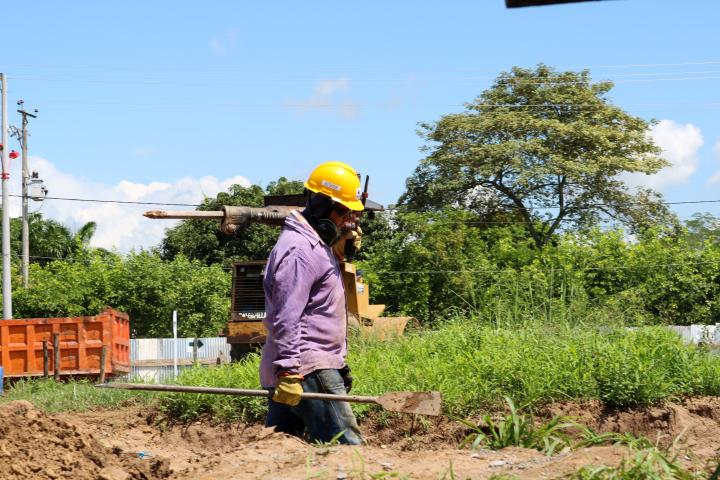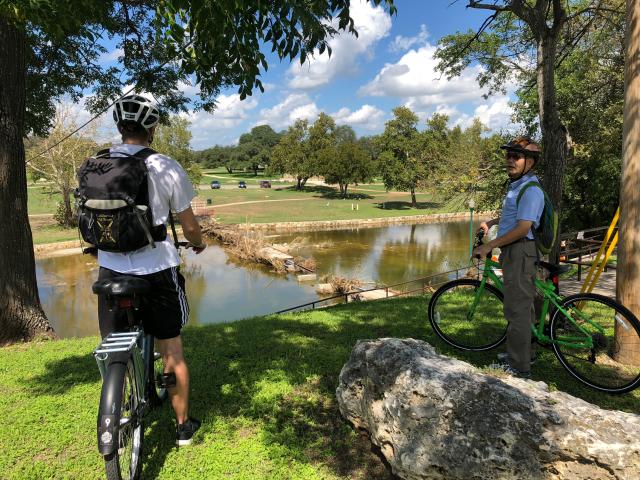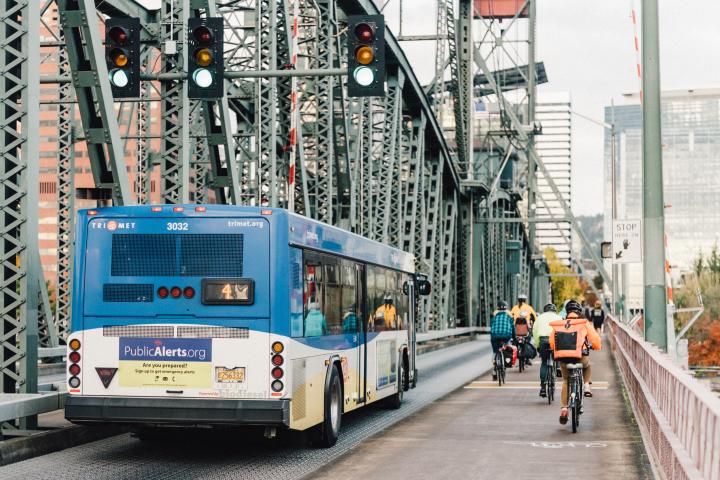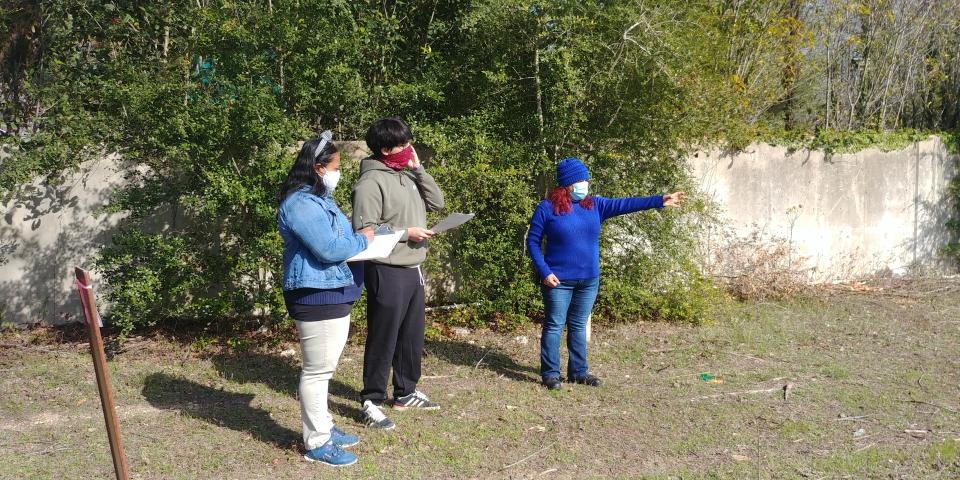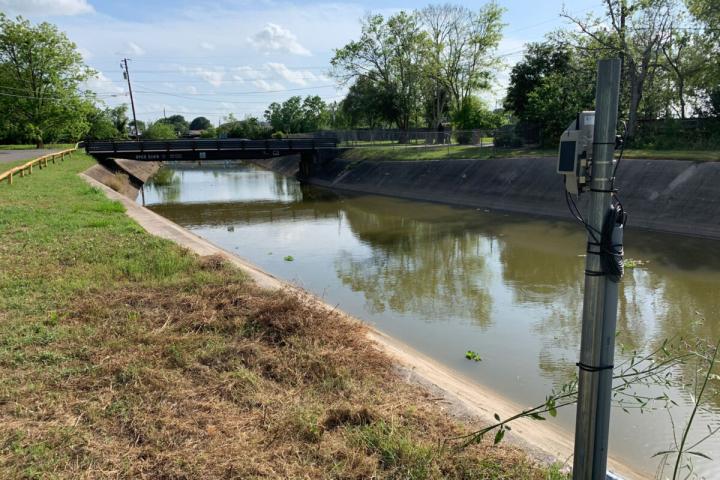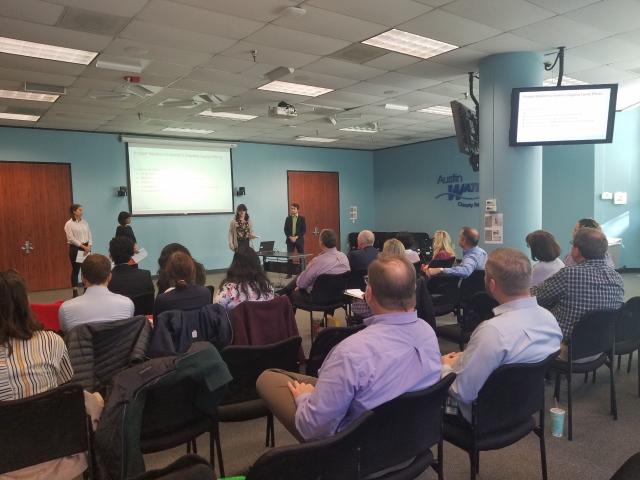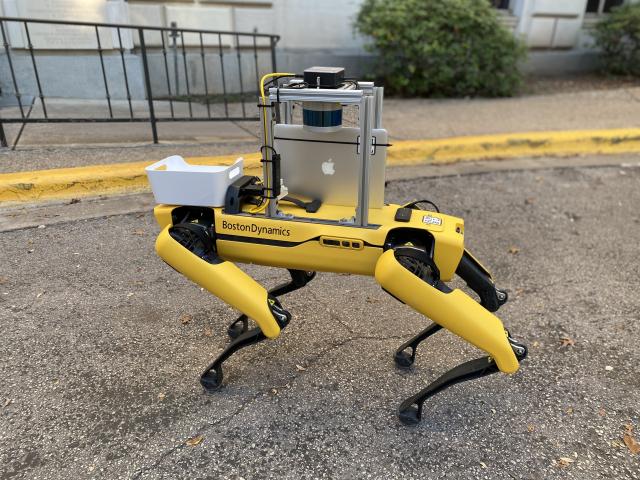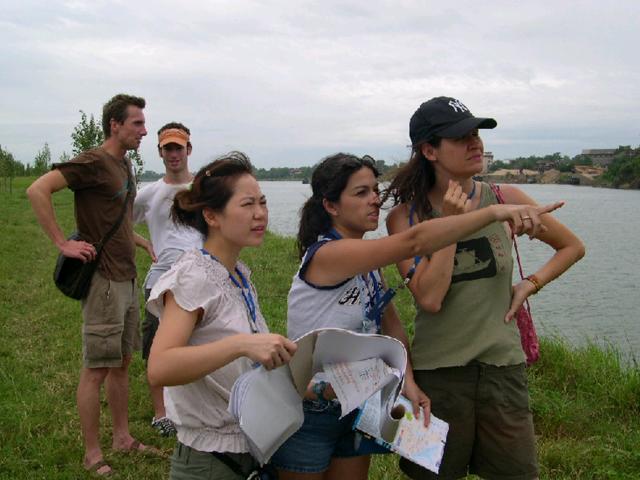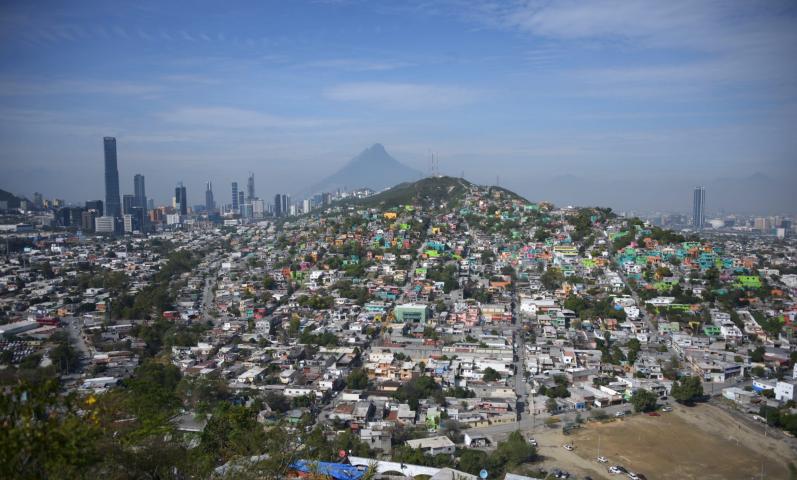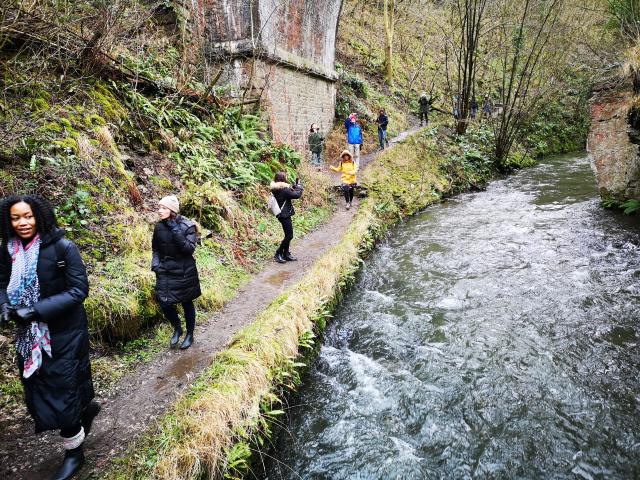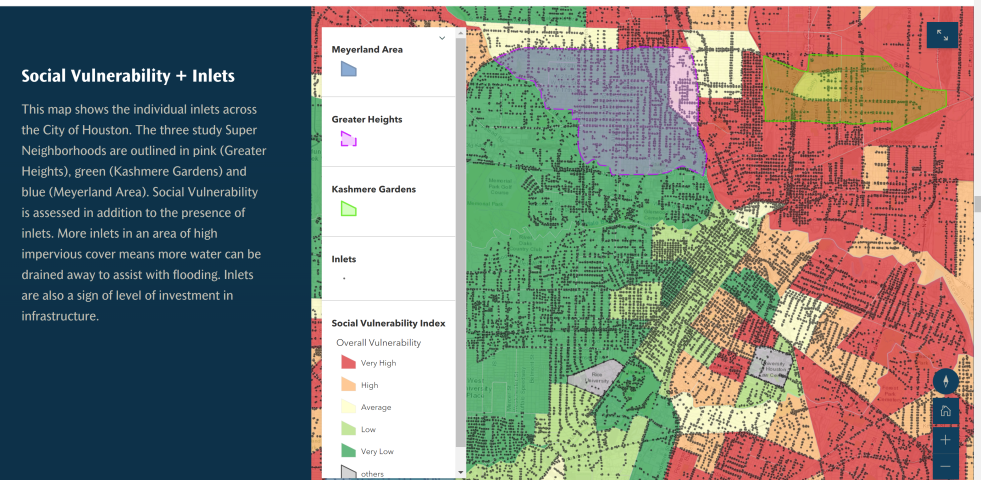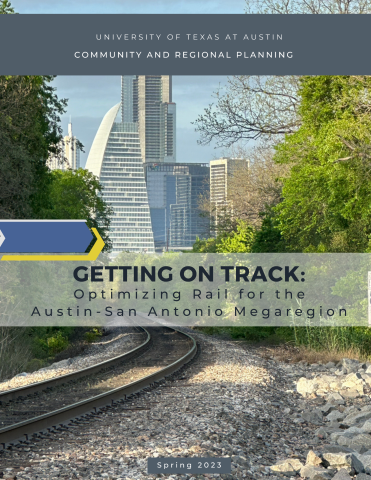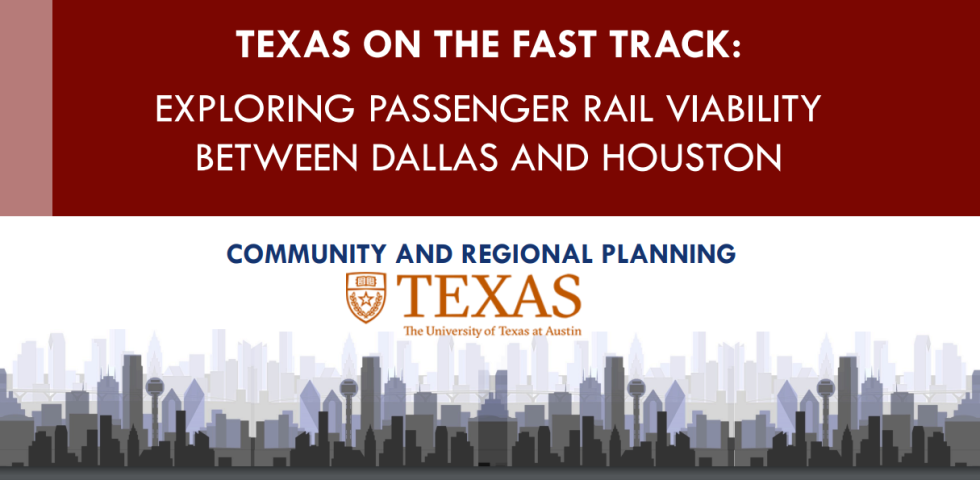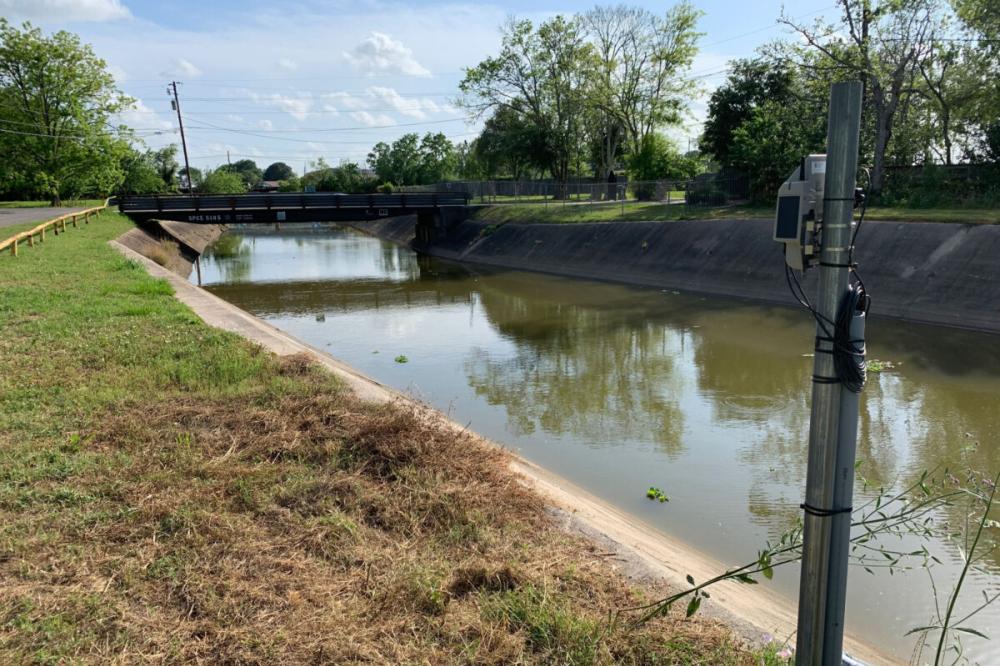 Expand view for photograph A drainage ditch in Beaumont Port Arthur
Expand view for photograph A drainage ditch in Beaumont Port Arthur
Home to the world’s largest oil refinery and a major hub in the global energy sector, Beaumont-Port Arthur is an area with high climate risk. In addition to high levels of existing air and water pollution, it is also an area of elevated social vulnerability, with fewer resources than larger Texas metro areas to address these issues. Thanks to a five-year, $17 million grant from the U.S. Department of Energy, Beaumont-Port Arthur is also the future home of the Southeast Texas Urban Integrated Field Lab (SETx-IFL)—a new research center established to study the risks and impacts of flooding and air pollution on the area.
One of only three projects supported by the Department of Energy’s recent round of funding, the SETx-IFL will bring researchers together from four Texas universities to address three core research themes: the physical systems of air and water, the co-design of climate adaptation tools, and equity. Led by UT Austin and principal investigator Associate Professor Paola Passalacqua (Civil, Architectural, and Environmental Engineering), the project involves researchers from Beaumont’s own Lamar University, Texas A&M University, Prairie View A&M University, and Oak Ridge National Laboratory in Tennessee. The UT Austin team includes ten faculty members from across the university, all affiliated with the Bridging Barriers grand challenges, including Community & Regional Planning Assistant Professor Katherine Lieberknecht, the lead for the project’s co-design theme.
“I think that one of the reasons we were able to develop such a compelling argument for a focus on Southeast Texas is the long-term work and the relationships our broader team has built with communities in the area,” Lieberknecht said. “In addition, the fact that we received this kind of long-term, large-budget award is a testament to UT Austin’s investment in the Bridging Barriers program, which has helped establish a well-developed network of interdisciplinary researchers with complementary expertise who can work collaboratively with one another.”
Each of the three projects selected for the Department of Energy’s funding will work in different urban regions with distinct and diverse marginalized populations that are facing different environmental and climate hazards: Chicago, Baltimore, and Beaumont-Port Arthur. As described in a recent Washington Post article, the mostly Black and Latino residents of Port Arthur have long felt underserved in terms of environmental justice work and that their city has been a “sacrifice zone.” As part of their work in the area, SETx-IFL researchers will collaborate with the local community to ensure their priorities and experiences are reflected in the lab’s research. In addition to the local connection provided by researchers at Lamar University, Lieberknecht will lead the project’s co-design theme—working with residents to ensure the climate adaptation plans, tools, and processes the lab develops in collaboration with residents are useful and equitable.
“This is pretty different than more typical research approaches, which might collect data without first consulting the local community, assuming it will be useful and relevant to them,” she said. “Instead, from the very beginning, we’ll be working with flood managers, residents, and community groups at every step of the research process to ensure the data we collect and the climate adaptation tools we co-develop are applicable and appropriate for the local context.”
With expertise in community-centered climate adaptation and environmental planning, Lieberknecht has led other recent projects that bring the local community’s perspective into the fold. One recent example is a National Science Foundation-funded Planet Texas 2050 project that has sought to build the social network, technological interface, and planning strategies needed to better integrate local residents’ lived experience of severe weather events into climate planning in order to increase climate and community resilience in the Dove Springs neighborhood in southeast Austin.
For more information about the SETx-IFL, visit the Cockrell School of Engineering’s announcement about the project, and the Department of Energy’s press release. The full list of researchers from The University of Texas at Austin includes:
- Paola Passalacqua, associate professor, Department of Civil, Architectural and Environmental Engineering
- Patrick Bixler, assistant professor, LBJ School of Public Affairs
- Kasey Faust, associate professor, Department of Civil, Architectural and Environmental Engineering
- Kerry Kinney, professor, Department of Civil, Architectural and Environmental Engineering
- Fernanda Leite, professor, Department of Civil, Architectural and Environmental Engineering
- Katherine Lieberknecht, assistant professor, School of Architecture
- Elena McDonald Buller, senior research engineer, Center for Energy and Environmental Resources, Cockrell School
- Pawel Misztal, assistant professor, Department of Civil, Architectural and Environmental Engineering
- Geeta Persad, assistant professor in the Jackson School of Geosciences
- Suzanne Pierce, research scientist, Texas Advanced Computing Center
FACULTY
Katherine Lieberknecht
MORE INFORMATION
UT Austin Press Release
DOE Announcement

